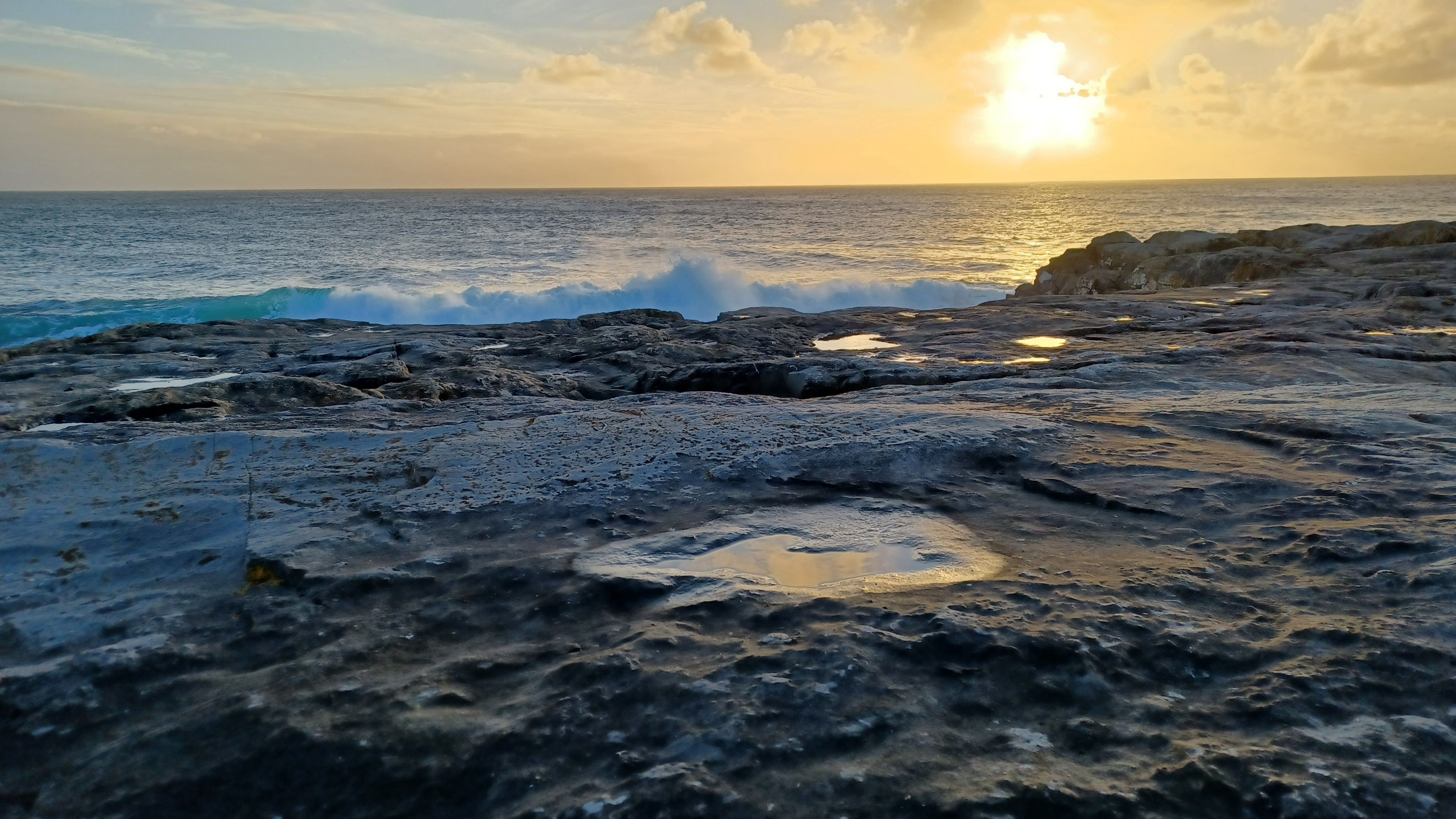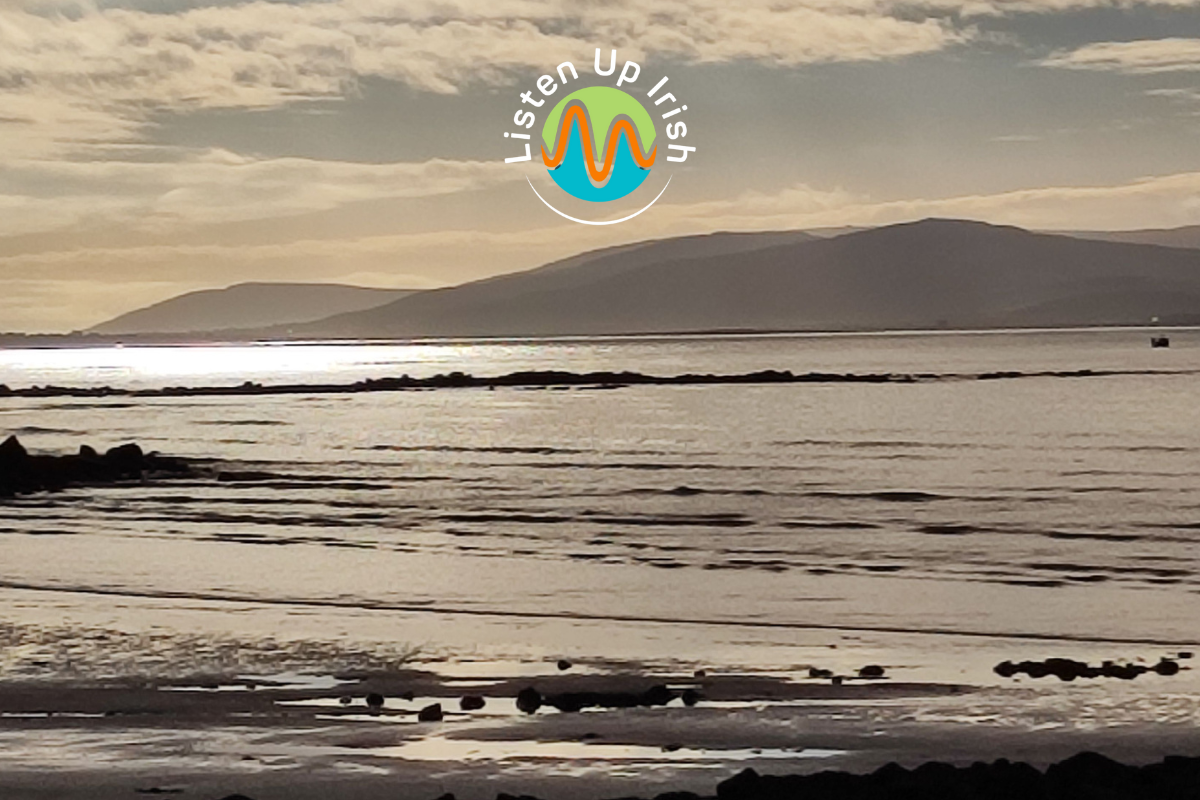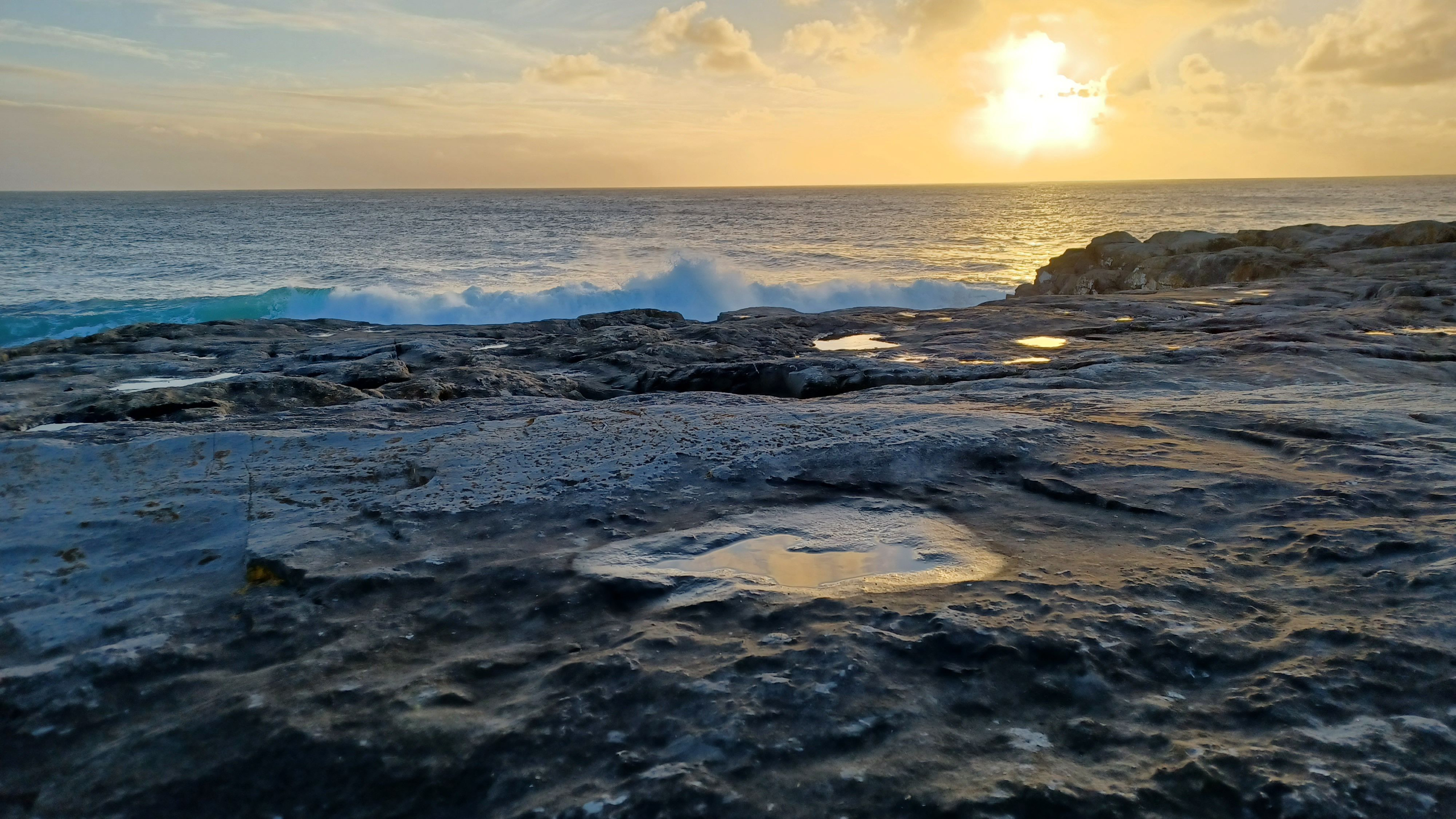7 of the best curses in Irish!

It's all very well knowing how to make polite conversation about the weather in Irish; but for some more interesting conversation it's time to learn a few curses!
Here are seven top class curses (and one bonus curse) that really shouldn't be used too often in everyday polite conversation. Use sparingly in cases of dire need.
Listen to Tadhg from Ros na Rún
Click on the image below to listen to Tadhg, the villainous barman in Irish language soap opera Ros na Rún, as he delivers a series of curses in his inimitable fashion (read the text below for more information on each curse):
7 mallacht i nGaeilge / 7 curses in Irish
- Ná raibh leacrachaí Ifrinn sách te agat!
- Go n-ithe an cat thú agus go n-ithe an diabhal an cat
- Go dtachta an bás thú
- Tá súil agam gur thíos in Ifreann atá tú agus an diabhal is giorra don tine ag sluaisteáil uirthi
- Mallacht Dé ort
- Meall geire go ndéana sé i do chuid putógaí
- Mo sheacht míle mallacht ort
And a bonus curse for luck...
Im ná raibh ar do bhainne; siúl ná raibh ag do leanbh; clúmh ná raibh ar do lachain is lao ná raibh ag do bhó; is gur mó is gur leithne an lasair a bheas ag dul trí d'anam ná sléibhte Chonamara is iad ag dó.
An modh foshuiteach / The subjunctive mood
Before we get stuck into the curses themselves a quick word about the 'modh foshuiteach' (subjunctive mood). The subjunctive mood is the part of the verb that is used when talking about a wish, or an imaginary situation. Here is an example of the subjunctive mood in English: 'If I were you....'
This is the part of the verb that is used in curses.
If you know how to say 'thank you' in Irish then you are already familiar with the modh foshuiteach: 'go raibh maith agat' (may good be on you).
Here 'raibh' is the subjunctive part of the verb 'bí' (it also happens to be the same as one of the forms of the verb used in the past tense: ní raibh).
may / go raibh
Ná raibh leacrachaí Ifrinn sách te agat!
May the stones of hell not be hot enough for you!
If you're into curses it's vital to expand your vocabulary to include words associated with hell, devils etc. This first curse will get you off to a good start.
This is a nice short, and easy to learn curse, and there's absolutely no reason why you can't find some use for it in the short term.
Hell / Ifreann
Notice that the negative of a subjunctive has 'ná' before it.
may / go raibh
may not / ná raibh
May the stones not be / Ná raibh leacrachaí
('Leac' is a flagstone; the plural in Connemara Irish is 'leacrachaí').
Go n-ithe an cat thú agus go n-ithe an diabhal an cat
May the cat eat you and may the devil eat the cat
Another short and easy to learn curse, and again one to use with abandon.
Another word to have in your arsenal if you're to become any way proficient at cursing in Irish is 'diabhal':
devil / diabhal
may the cat eat / go n-ithe an cat
Go dtachta an bás thú
May death choke you
Nice.
Not to be used when trying to make friends or influence people.
Are you spotting the subjunctive / modh foshuiteach pattern yet?
May death choke / go dtachta an bás
Tá súil agam gur thíos in Ifreann...
This is a long one, but I think you're ready for it by now.
Tá súil agam gur thíos in Ifreann atá sí, agus an diabhal is giorra don tine ag sluaisteáil (tine) uirthi.
I hope that it is down in hell she is, and the devil closest to the fire shovelling fire on her.
Not one for everyday use, being that bit longer; but a good one to have in the back pocket should the occasion arise.
(Notice how Tadhg pronounces 'agam' in the video (linked in image above). It sounds more like 'a'm' - Connacht Irish).
Mallacht Dé ort
We're back to the short everyday curses.
God's curse upon you.
a curse / mallacht
Meall geire...
Meall geire go ndéana sé i do chuid putógaí
May it make a ball of fat in your guts
may it make / go ndéana sé
Mo sheacht míle mallacht ort
My seven thousand curses on you
The number seven is often used as an intensifier in Irish; and seven thousand is stronger again!
Here is another example of 'seven' as an intensifier:
I did my best / Rinne mé mo dhícheall
I did my absolute best / Rinne mé mo sheacht ndícheall
I did my utmost absolute best / Rinne mé mo sheacht míle dícheall
Im ná raibh ag do bhainne...
To finish off here's the mother of all curses!
Im ná raibh ar do bhainne; siúl ná raibh ag do leanbh; clúmh ná raibh ar do lachain is lao ná raibh ag do bhó; is gur mór is gur leithne an lasair a bheas ag dul trí d'anam ná sléibhte Chonamara is iad ag dó.
May your milk not make butter; may your child not walk; may your ducks be featherless; may your cow not calve; and may the flame that goes through your soul be bigger and wider than the hills of Connemara as they burn.
I've nothing to say about this one.
Except to use it sparingly, if at all.
What is the best way to learn Irish?
I am often asked what is the best way to learn Irish; and my answer is 'whatever suits you best'! Having said that I have discovered that for most people a mixture of formal learning (e.g. my online Irish language courses) and lots of informal reading and listening practice are the fastest way to fluency. In my online courses you will learn about the structure of the language - the simple patterns that are easy to learn and that will build a solid foundation for all future learning. In Beginner Irish you will get off to a flying start and will be able to hold a short conversation after just eight short lessons. For intermediate level learners the verbs courses are the best starting point, as verbs are the 'skeleton' of the language. In these short courses you will learn how to use all verbs in Irish in the present, future and past tenses with ease. These courses also build useful everyday vocabulary in Irish and will build your confidence when speaking Irish. For anyone interested in Irish language literature and poetry then make sure to check out the Learn Irish Through Literature and Learn Irish Through Poetry courses.
If you're not sure which course is the right one for you just contact me and I will help you decide. All courses come with a 14 day full refund, no questions asked policy, so there is absolutely no risk at all.
If you want to become a fluent Irish speaker you will need to listen to lots of Irish; and read in Irish in order to increase your vocabulary. Once you have learned the basic structure of the language lots of reading and listening are vital. All About Irish online Irish language courses incorporate lots of reading and listening. All of the courses are available on an app so that you can learn Irish whenever and wherever suits you best so that you can fit your language learning easily into your daily life.





